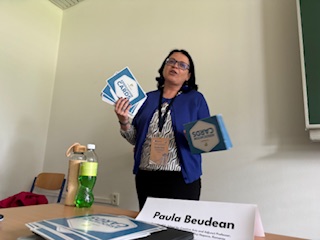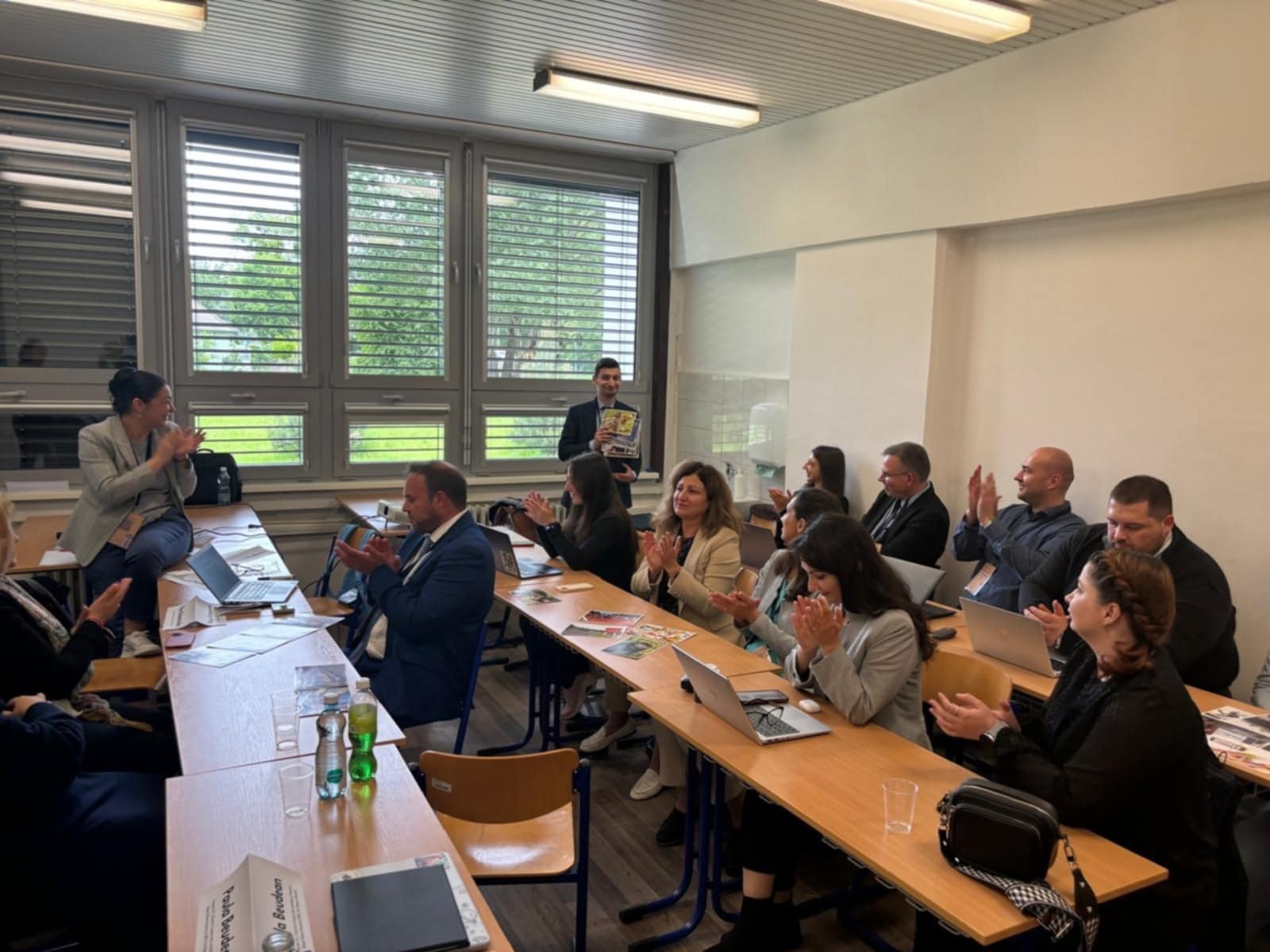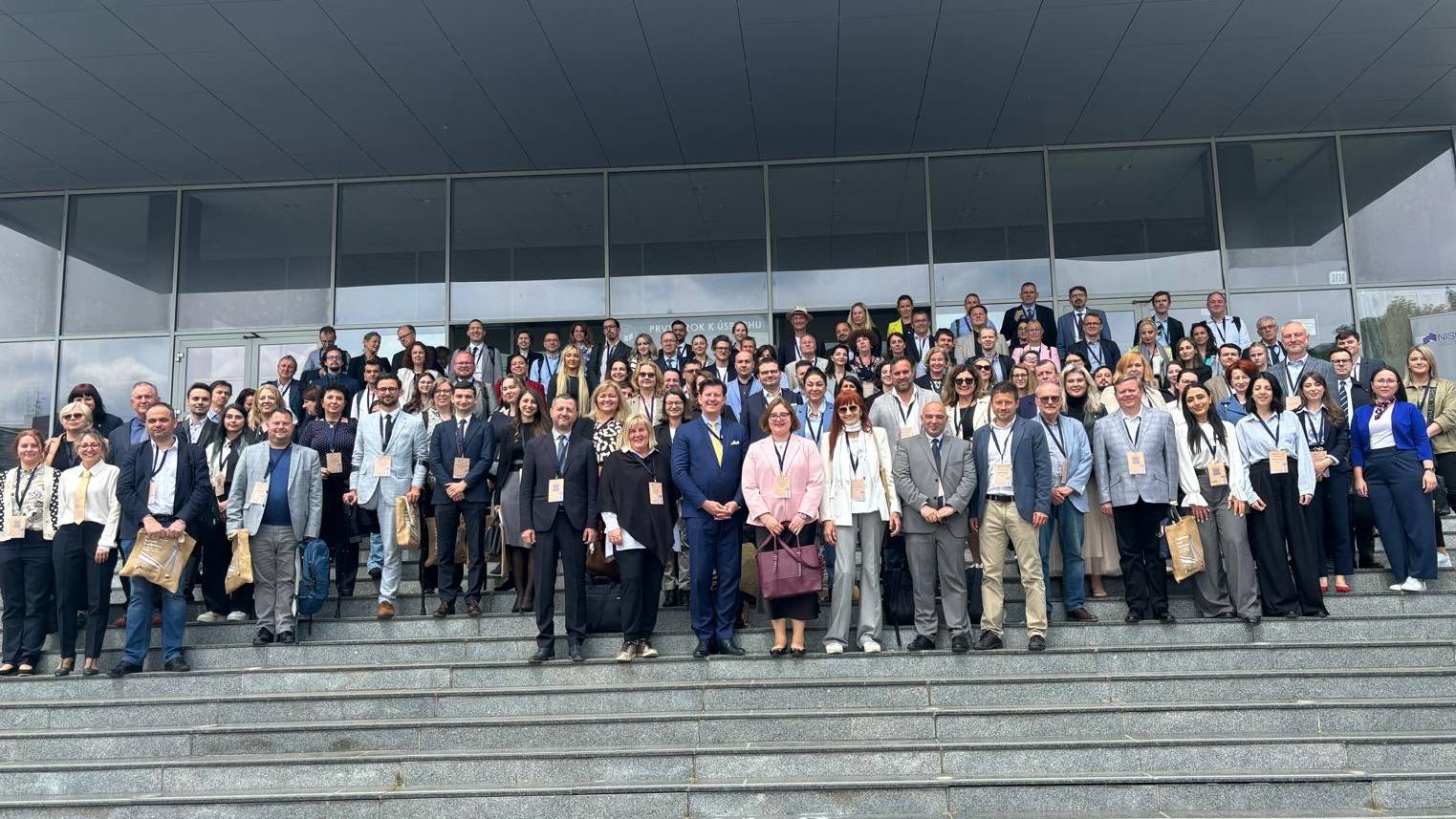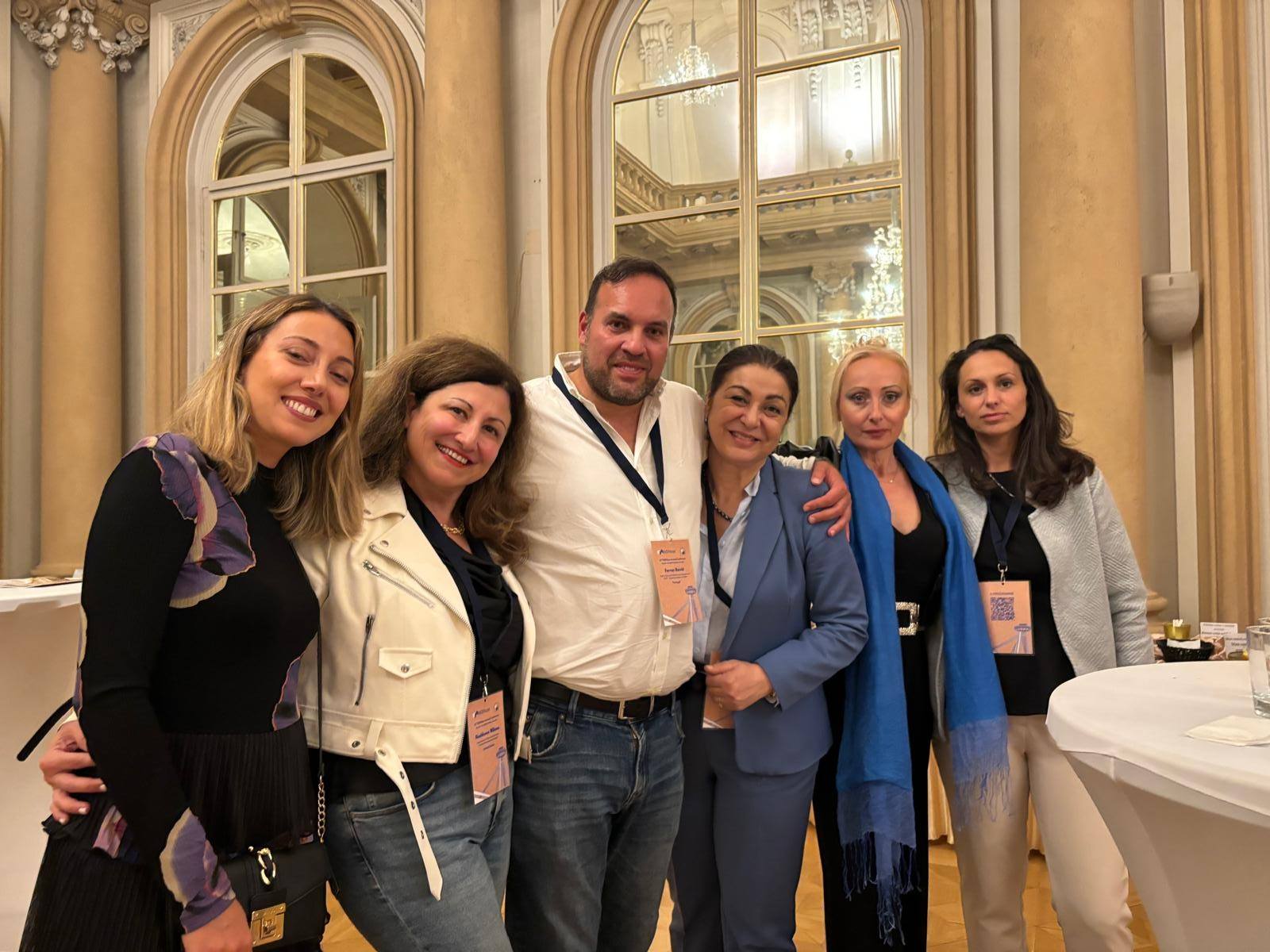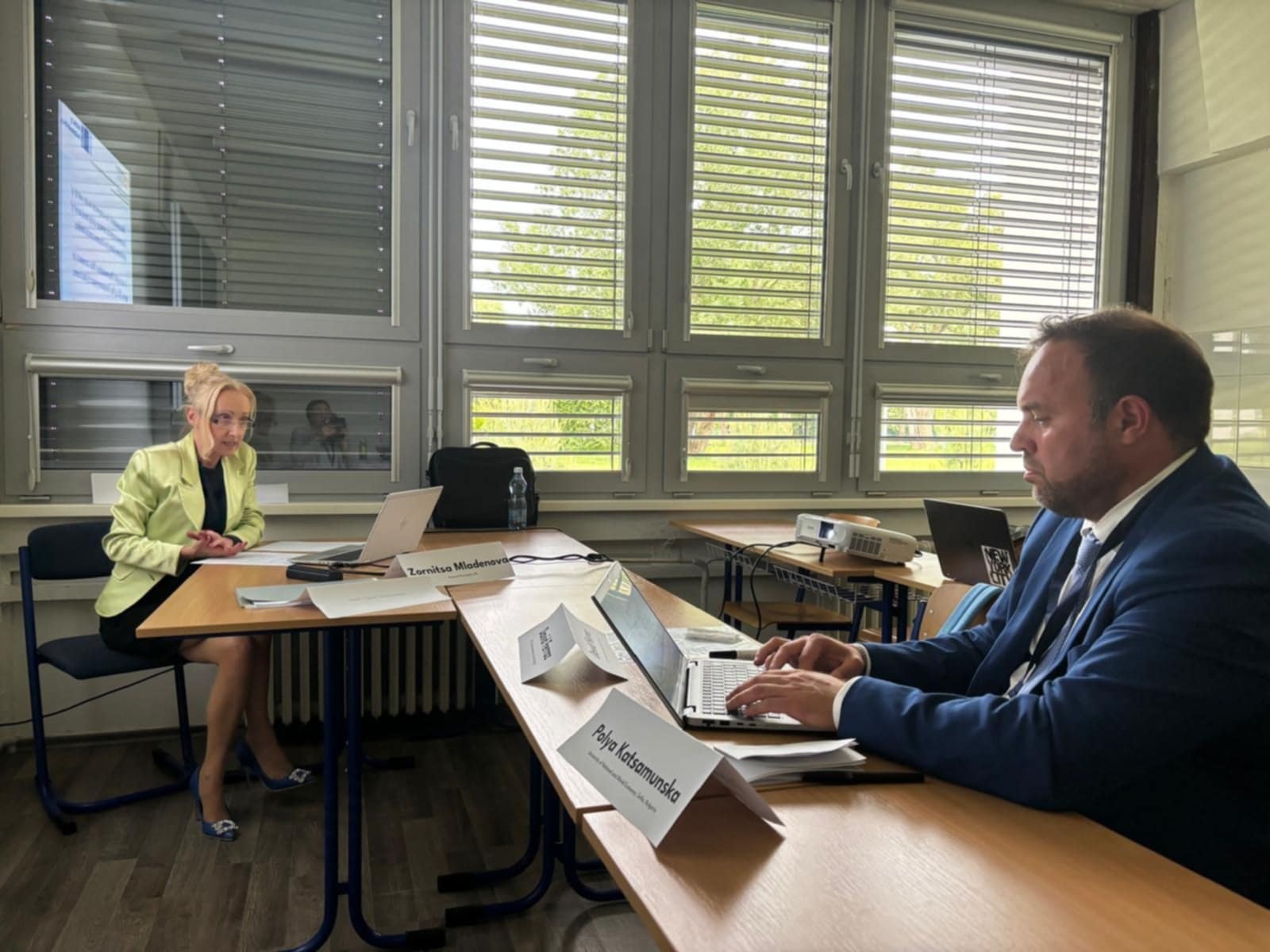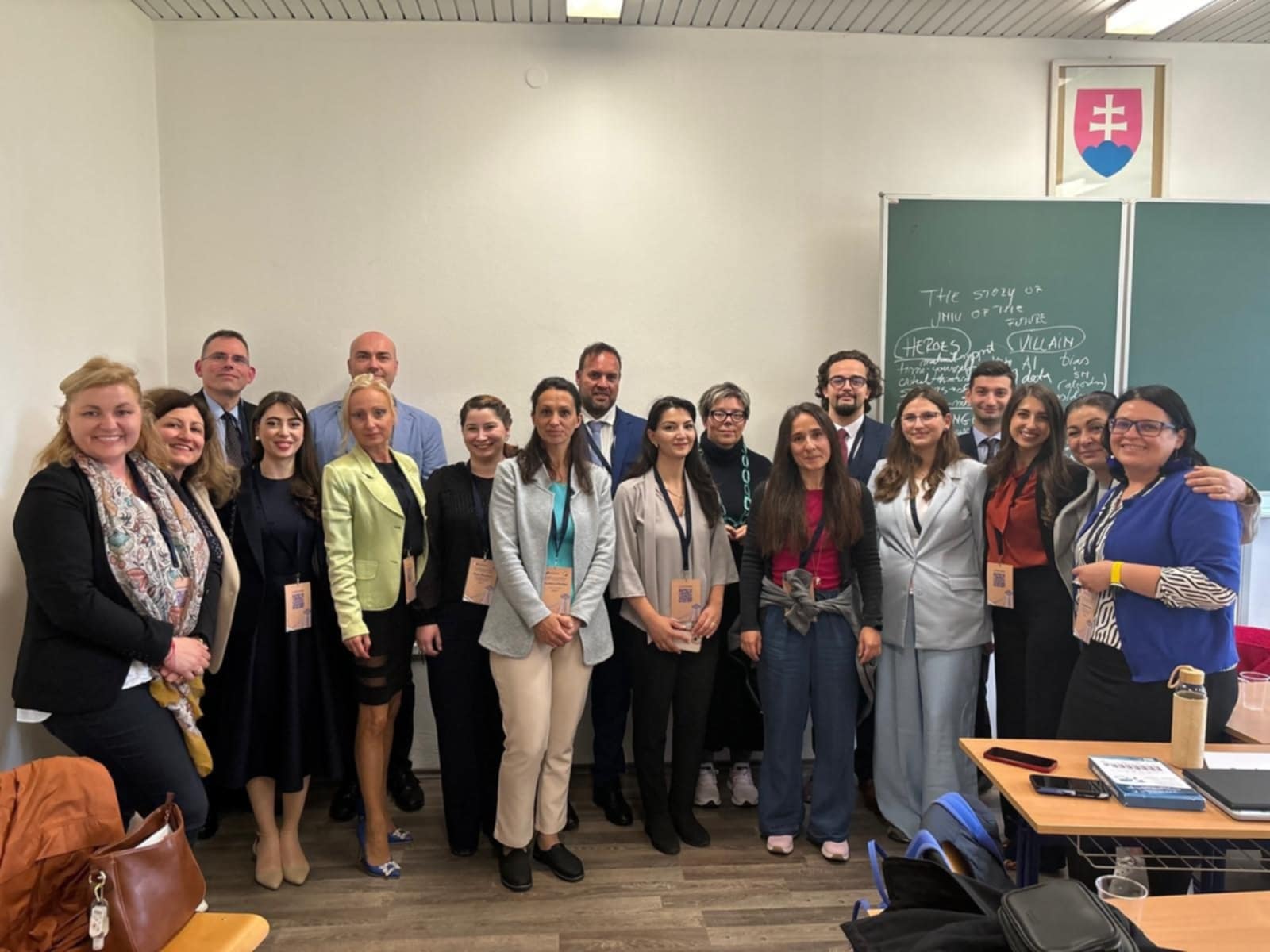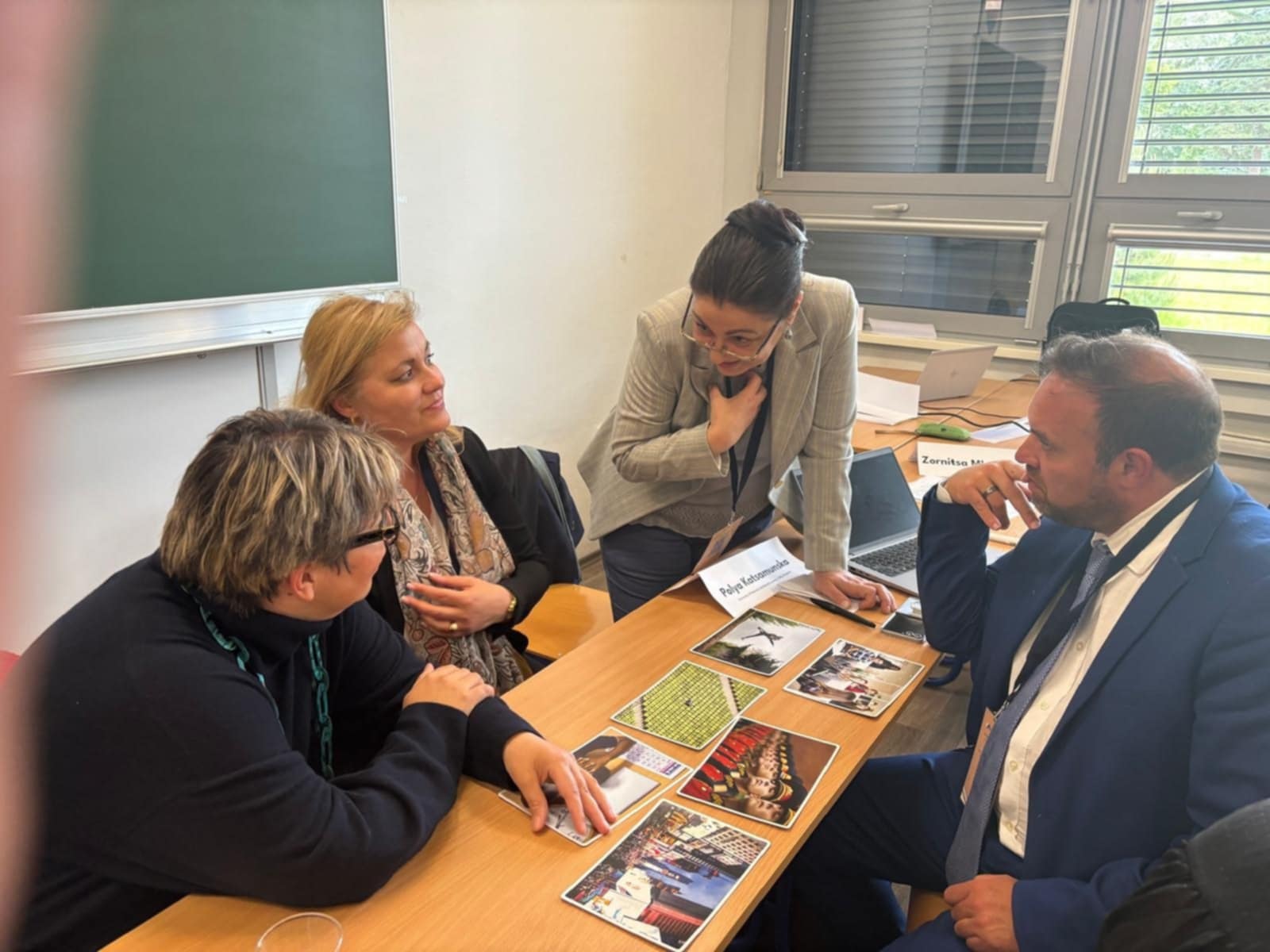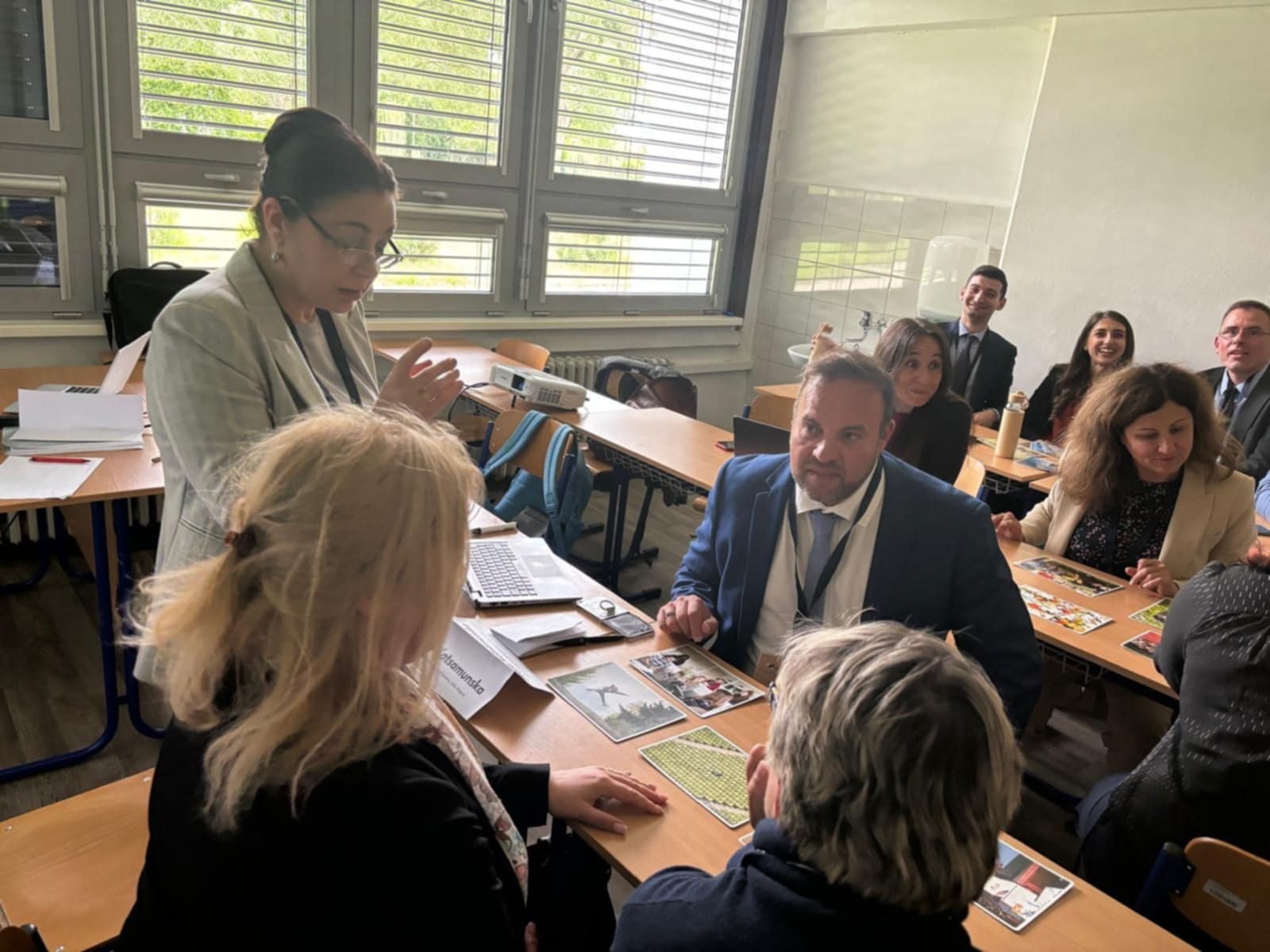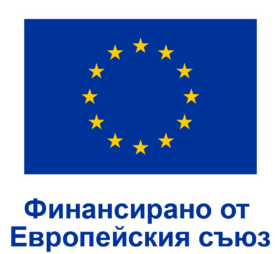- Администрация
- Общински съвет
- Нормативна уредба
- Профил на купувача
- Новини
- За общината
- Услуги
- Контакти
-
ИЗБОРИ
- Избори за Народно събрание 27 октомври 2024 г.
- Избори за членове на Европейския парламент от Република България и за народни представители на 9 юни 2024 г.
- Информация и материали за избори за общински съветници и за кметове на 29.10.2023г.
- Информация и материали за "Избори за Народно събрание на 02.04.2023г."
- Информация и материали за Избори за Народно събрание на 02.10.2022 г.
- Информация и материали за Избори за президент и вицепрезидент на републиката и за народни представители на 14.11.2021 г. / 21.11.2021 г.
- Информация и материали за "Избори за Народно събрание 2021 г." на 11.07.2021 г.
- Информация и материали за "Избори за Народно събрание 2021 г."
- ОБЩЕСТВЕН ПРЕВОЗ
Проекти
STUDIES-DIG Project activities presented at the 33rd NISPAcee Annual Conference in Bratislava, Slovakia
30.05.2025
The STUDIES-DIG Project, coordinated by UNWE, BG was presented during the 33rd NISPAcee Annual Conference on “Polycrisis and multi-level governance: Impacts, lessons learned, challenges and opportunities" in Bratislava, Slovakia from May 22-24, 2025. The conference was organized in cooperation with the Faculty of Economics and Finance of the Bratislava University of Economics and Business and brought together experts, scholars and practitioners who work in the field of public administration in Central and Eastern Europe, Western Europe and the USA providing a forum for an open exchange of theoretical ideas, food for thought for the future, existing best practices etc.
The following members of the STUDIES-DIG consortium participated in the 33rd NISPAcee Annual Conference and contributed to the WP 2 research, training and networking activities:
Prof. Polya Katsamunska from UNWE, Bulgaria, the project coordinator
Prof. Dr. David Ferraz from ISCTE-Instituto Universitário de Lisboa, Portugal,
Prof. Dr. Bogdana Neamtu from Babeș-Bolyai University, (UBB), Cluj-Napoca, Romania
Prof. Dr. Nikolae Urs from Babeș-Bolyai University, (UBB), Cluj-Napoca, Romania
Dr. Paula Beudean, Founder of C. School for Creative Acts and Adjunct Professor, Babeș-Bolyai University (UBB), Cluj-Napoca, Romania
D.Sc. Zornitsa Mladenova, project senior researcher from Rudozem Municipality, and senior researcher at the University of Library Studies and Information Technologies
Mrs. Pavlina Boyklieva, STUDIES-DIG project manager at Rudozem Municipality, Bulgaria
The conference program included a panel on Digital Transformation of Higher Education: Innovative Approaches and Best Practices in Public Administration Education, which was centered on the key areas of digitalization processes in education and explored innovative approaches and contributions to Public Administration (PA) education in the context of digital transformation. The panel provided a forum for discussion as well as an open exchange of theoretical ideas and views, experience and existing best practices among scholars and practitioners working on the Project 101131544 - Models and Instruments for Transforming Higher Education Systems through Transnational Multi-Sector Links (in short STUDIES-DIG). The panel was open to all conference participants interested in this topic of research and provided an excellent opportunity for knowledge transfer and long-term collaboration within the network and beyond.
The panel aimed to shed light on how digital tools and methodologies are reshaping PA education and training for future policymakers in a data-driven world and discussed the progress made thus far, along with the challenges faced. The panel was chaired by Prof. Polya Katsamunska - the STUDIES-DIG Project coordinator, who set the scene by overviewing the project’s goal and tasks and highlighted the theoretical and practical areas of significance. The panel presentations were focused on digital education, distance learning tools, and dissemination practices within the project.
Prof. Dr. David Ferraz from ISCTE-Instituto Universitário de Lisboa, Portugal, made a presentation on Digital Education Contributions to Public Administration Education and examined how digital technologies are reshaping the field of Public Administration education. Drawing on findings from the STUDIES-DIG Project, his presentation focused on key innovations such as the integration of big data, artificial intelligence (AI), and digital governance tools into curricula and highlighted the impact of these tools on empowering future policymakers and public servants, preparing them to make data-driven decisions and effectively navigate digital governance challenges.
The presentation made by D.Sc. Zornitsa Mladenova from Rudozem Municipality in Bulgaria discussed the Dissemination Practices of the STUDIES-DIG Project: Facts and Figures. Her presentation focused on the dissemination strategies employed within the project, with a particular emphasis on how key findings and best practices have been shared across institutions. She shared important data and figures regarding the reach and impact of the dissemination efforts, including the tools and platforms used to ensure the project’s findings are accessible to a broader audience, including public administration institutions and educators.
Prof. Dr. Bogdana Neamtu from Babeș-Bolyai University (UBB), Cluj-Napoca, Romania examined the roles of local, regional, and national factors in shaping the transformation, highlighting how these factors interact to influence digital adoption and integration strategies in higher education. By synthesizing case studies and empirical data from diverse geographic contexts, she presented a framework for understanding how multilevel factors shape digital transformation. The findings underscored the need for a nuanced approach to policy and practice, advocating for alignment among local, regional, and national stakeholders to create a resilient and adaptable digital ecosystem in higher education.
Dr. Paula Beudean, Founder of C. School for Creative Acts and Adjunct Professor, Babeș-Bolyai University (UBB), Cluj-Napoca, Romania presented the results of experiment workshops run with university students from UNWE (Bulgaria) and BBU (Romania) as part of the STUDIES-DIG project and conducted an effective brainstorming session in which all participants in the panel focused on generating ideas about what will the university of the future look like and gaining insights into possible developments and scenarios for the university of the future. The brainstorming session aimed at encouraging diverse perspectives and innovative thinking without immediate judgment or criticism. During the session, all panel participants were divided into four groups, where members of each group generated creative ideas and solutions on the brainstorming topic through open discussion and collaboration.
In addition to the STUDIES-DIG panel, the NISPAcee conference program also included a paper presentation on Digital transformation and its impact on education and training as illustrated through the experience of a Bulgarian university. The paper was jointly prepared by Polya Katsamunska and Zornitsa Mladenova and was presented at WG7: Public Administration Education, chaired by Dr. Calin Hintea, immediate past NISPAcee president and professor of Public Administration at Babes-Bolyai University. The paper is part of the research activity in the frame of the STUDIES-DIG project and was designed to better understand digital transformation and the development of new technologies, focusing on the concept of metaverse that encompasses a wide range of virtual and augmented reality technologies, as well as social and collaborative platforms. To illustrate the development of the digital transformation in higher education, the paper examined the experience of a Bulgarian university and displayed how far the activities of the modern university have moved beyond traditional classroom teaching.
More information about the 33rd NISPAcee Annual Conference and the STUDIES-DIG project panel at https://www.nispa.org/conference/2025
Търсене
Меню
Проект BGENVIRONMENT-4.004-0002-C01 Общините Рудозем, Мадан и Девин работят заедно за повишаване на общинския капацитет за намаляване на емисиите на парникови газове и адаптация към променящия се климат

